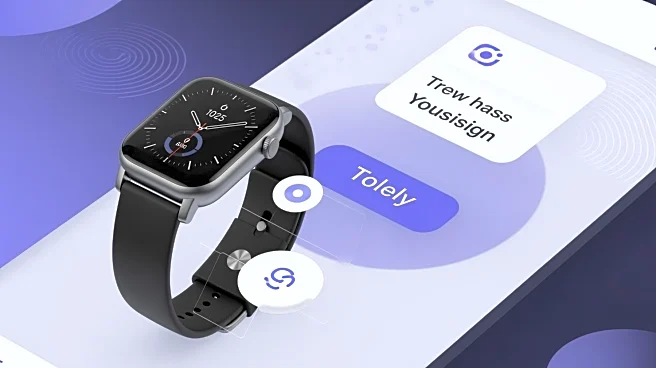What's Happening?
Google is rolling out a major redesign of the Fitbit app for Android users starting October 28. This update is available to those with a Fitbit Premium subscription and a compatible device, such as modern Fitbit trackers, smartwatches, or the Pixel Watch.
The redesigned app emphasizes an AI-powered Fitbit Coach, offering new functionalities aimed at enhancing user experience. However, the current release is a preview version, and several features are not yet available. Missing functionalities include menstrual health tracking, nutrition and hydration logging, blood glucose tracking, and body temperature logging. Additionally, advanced running metrics for Pixel Watch users, stress management scores, and heart rate zone analysis are absent. Google plans to add these features over time, with a full launch expected next year.
Why It's Important?
The redesign of the Fitbit app marks a significant shift towards integrating AI-driven coaching, which could enhance user engagement and provide more personalized fitness guidance. This development is crucial for Fitbit as it competes in the crowded fitness tracker market, where innovation and user experience are key differentiators. The absence of several features in the preview may affect user satisfaction and retention, especially for those relying on comprehensive health tracking. However, the ability to switch back to the standard app version offers flexibility for users who need the missing functionalities. This strategic move by Google could strengthen Fitbit's position in the market by aligning with broader trends in AI and personalized health technology.
What's Next?
As the preview progresses, Google is expected to gradually introduce the missing features, aiming for a complete rollout next year. Users can anticipate updates that will restore functionalities such as menstrual health tracking and advanced running metrics. The integration of these features will likely enhance the app's appeal and usability. Stakeholders, including users and developers, will be watching closely to see how Google addresses feedback and improves the app's capabilities. The success of this redesign could influence future developments in wearable technology and AI-driven health solutions.
Beyond the Headlines
The Fitbit app redesign reflects broader trends in the tech industry, where AI is increasingly used to personalize user experiences. This shift raises questions about data privacy and the ethical use of AI in health tracking. As Google enhances the app's capabilities, it will need to ensure robust data protection measures to maintain user trust. Additionally, the focus on AI-driven coaching could lead to long-term changes in how users approach fitness and health management, potentially influencing lifestyle choices and wellness practices.
















